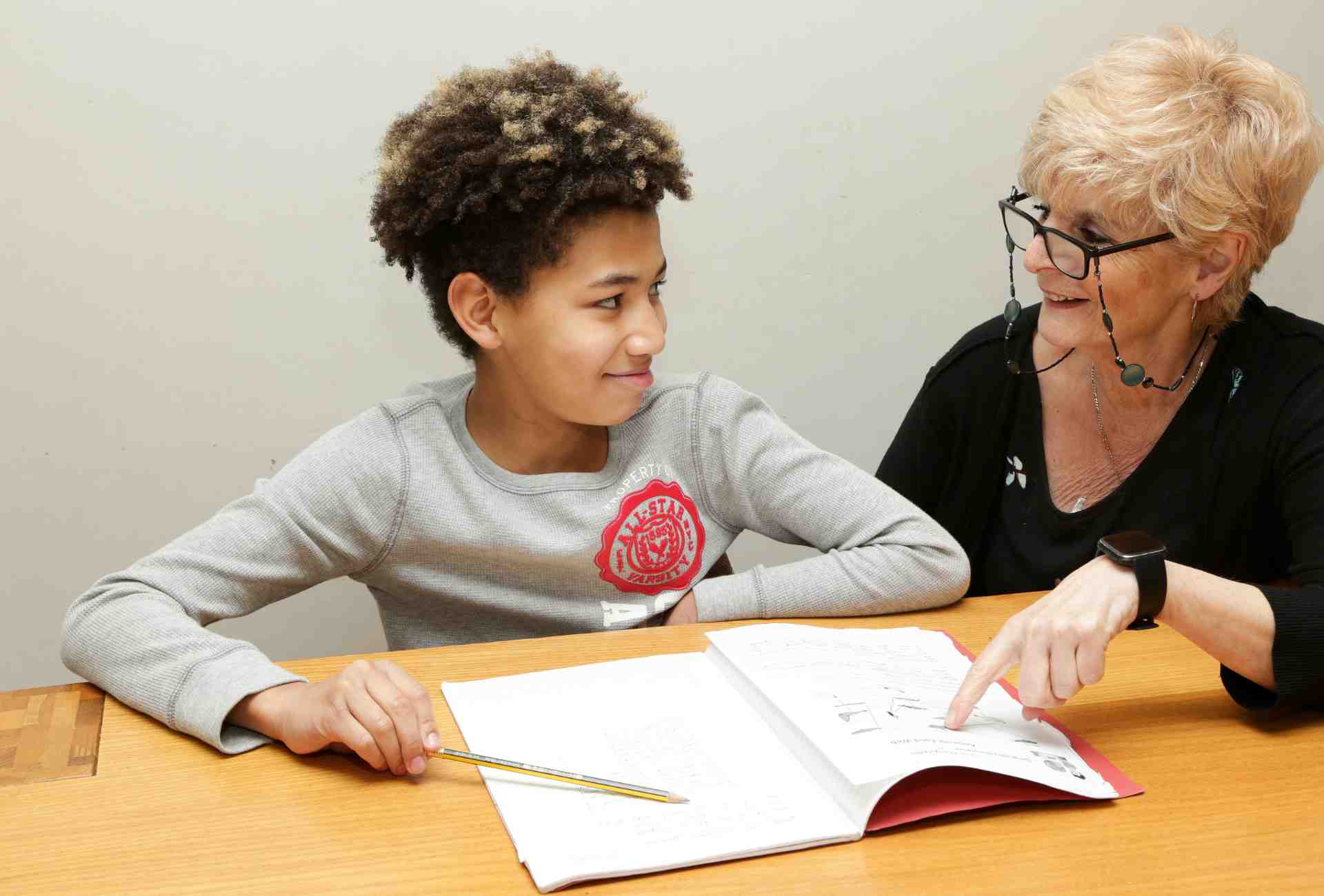6 ways to support children with worries around schoolwork and exams

Cecilia Corbetta
Head of Parenting – Cecilia is a BACP accredited counsellor, clinical supervisor and parenting coach with over 20 years of experience delivering counselling, therapeutic services and supervision within schools and private practice. She joined Place2Be in 2003 and is incredibly passionate about supporting parents and carers to achieve the best possible outcomes for children.
New data published by Place2Be to launch Children's Mental Health Week 2024 has revealed that schoolwork and exams is the top worry for children and young people. We’ve shared some tips on how to support children and young people with worries around schoolwork and exams.

In a YouGov survey of 8-16 year olds, commissioned by Place2Be ahead of the week, 60% reported worrying about schoolwork and exams in the past three months. Interestingly, this wasn’t just the case for secondary and high school age pupils - with 8-11 year olds reporting schoolwork and exams as their top worry.
We know that schoolwork can be challenging and stressful for children and young people, and exams can be a particularly worrying time for secondary and high school pupils. As parents and carers, it can be difficult to know what we can do to support children. Place2Be’s Regional Clinical Lead for London and West, Cecilia Corbetta, has shared her top tips for supporting your child if they’re feeling stressed about schoolwork or exams.
Acknowledge their feelings
Rather than just focusing on their behaviour, ask your child about their feelings and validate these. For example, if your child is nervous in the run-up to results day, or feeling frustrated about their homework let them know that these feelings are entirely natural and to be expected.
If your child is disappointed with their grades, then acknowledge this, rather than trying to ‘jolly them along’ too quickly.
Make yourself available to listen
Sometimes your child may not want to talk, and it’s important we don’t force them to have a conversation they don’t want to have. Make yourself available but don’t pressure them to talk.
You may find that your child opens up in situations where they feel less pressure – for example when you’re in the car on the way home from school, or during a walk.
Look for signs of stress
Stress can present differently in everyone. Signs of stress could include not sleeping or sleeping more than usual, losing interest in food or eating more than usual, being irritable, having headaches or stomach aches, being negative, feeling hopeless, or not enjoying activities they previously enjoyed. If you notice your child is struggling, ask them what you can do to help them.
Be reassuring
Make it clear to your child that, whatever their grades, you love them for who they are – rather than the results they are awarded.
Set up the right routines for homework
After school, many children are exhausted, hungry and need to re-connect with parents (although they might not be able to put this into words!). It’s common for children to try and ‘put off’ homework.
Homework time often coincides with the end of the day when parents can be tired and wanting to get it ‘out of the way’ as quickly as possible.
Setting up some routines can help make homework a more positive family experience:
- sticking to a regular time for homework will help to reduce your child’s protests or the pressure you might feel to nag them
- doing homework can be hard work and it requires energy. If your child is hungry or tired, let them have dinner or a snack first
- find a place for your child to do their homework that is away from distractions (such as the TV)
- make sure they have the equipment they need before they get started.
Help them unwind after exams or a challenging piece of work
Find ways to help your child unwind after each exam or difficult piece of homework, so they don’t dwell on things they could have done better or differently. You and your child could watch a film or enjoy your favourite meal together.
Other resources you may find useful
News & blogs

Place2Be’s online parenting course now available to local authorities
Place2Be’s online parenting course empowers parents and carers to feel better equipped to manage the journey of parenting.
Read more
10 tips for nurturing the wellbeing of LGBTQ+ young people
Place2Be's Plus+ Group shares their tips and advice on how to create safe environments for LGBTQ+ children and young people.
Read more
Making magical moments for foster families
This Foster Care Fortnight is about celebrating those moments that define fostering journeys for children and their carers.
Read more



